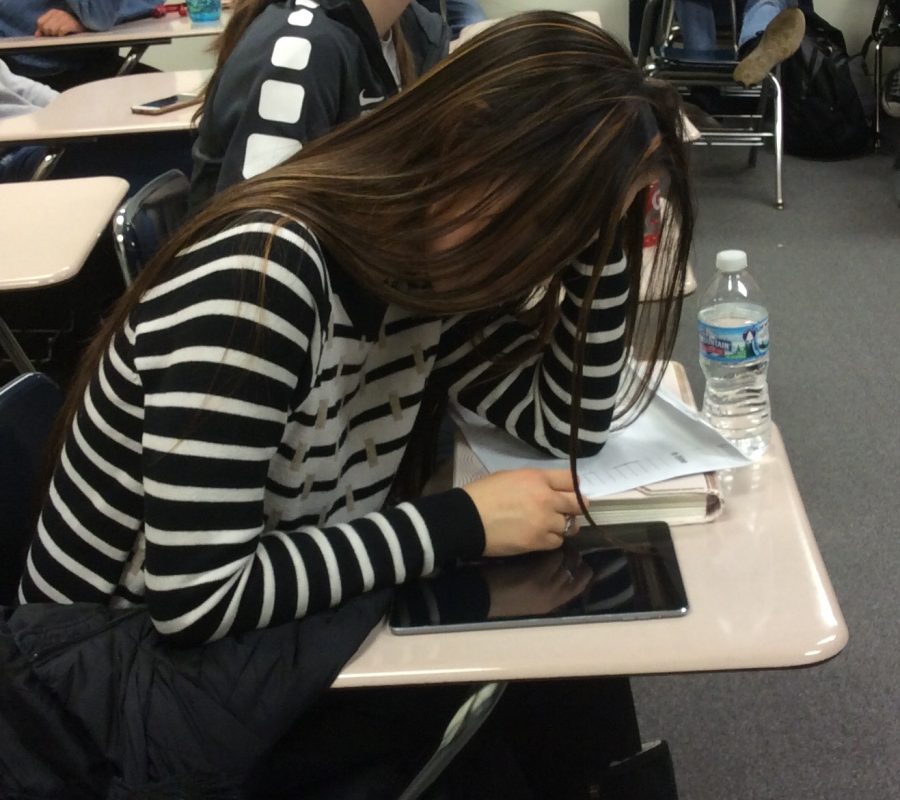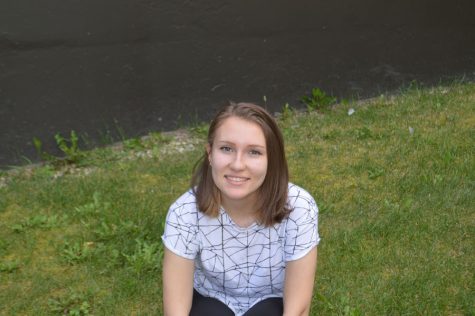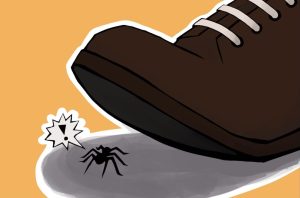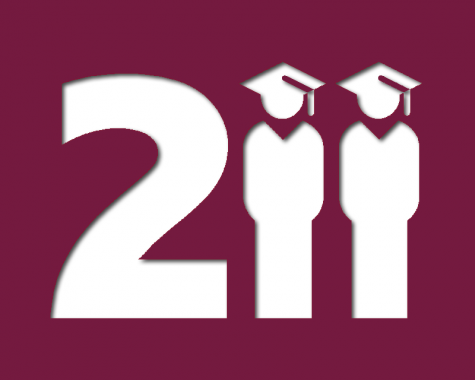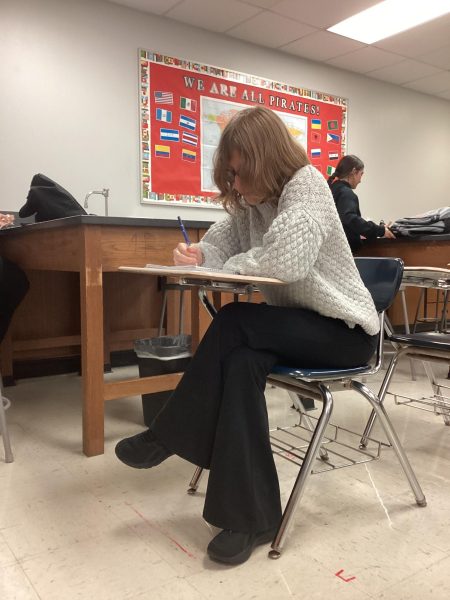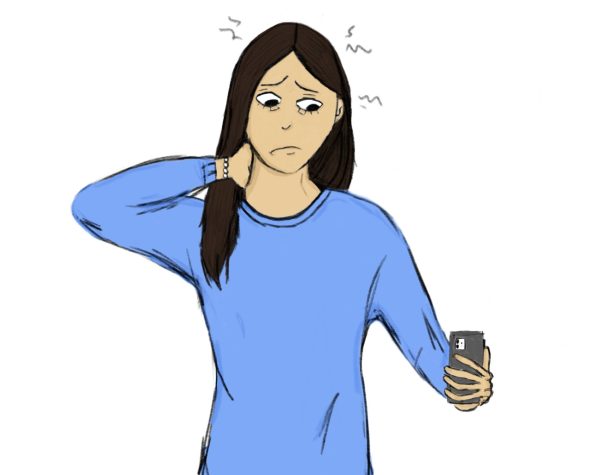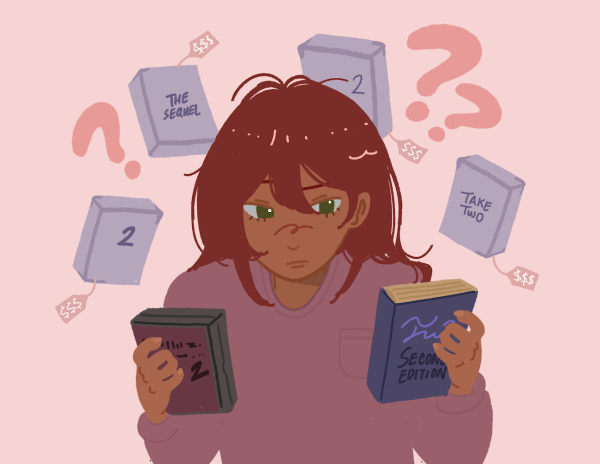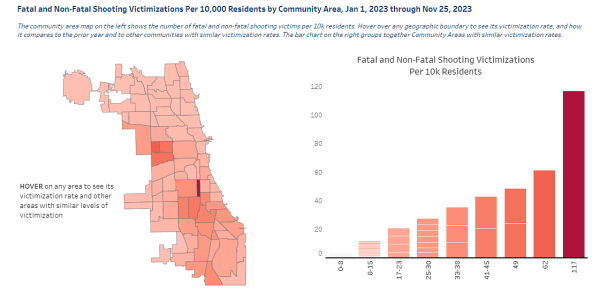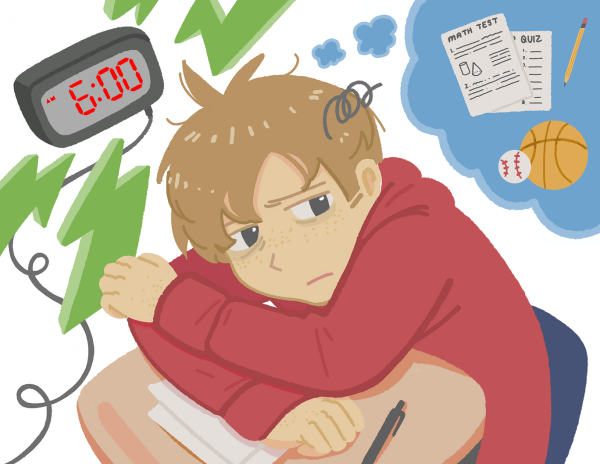Later school start times can help sleep deprived students
PHS senior sleeping in her AP Literature and Composition class.
January 11, 2018
Among a sleep deprived generation, students all over the country are advocating for later start times in their high schools.
Sleep deprivation is no joke and in fact, it is a serious threat to our health, safety and academic success.
It is well known that teenagers in the US do not get enough sleep, and I think that one of the ways to fight this is through delayed start times in schools.
“Students need time to mentally prepare themselves for the day,” PHS sophomore Sophia Kochelyk said. “It’s hard for us to do so when we have to wake up so early to get to school.”
Sleep deprivation can be fought with delayed start times because students are given the chance to rest more, and this is incredibly beneficial for students who stay up late finishing homework and such.
Those extra 30-45 minutes students could be given to rest can amount to enormous positive benefits. Sleep deprivation can result in an inability to concentrate, poor grades, anxiety, and depression.
If administrators have the ability to prevent some of these things, then I think they should issue later start times for students.
Late starts in high schools can also mean less absences. A study in Bonneville County, Idaho showed that absences decreased 15% after a later start was issued.
Although school administrators cannot control what time the students get to bed and amount of sleep they get, administrators can control what time they need to report to school, and this has been proved by multiple studies to have a positive effect.
One study at a high school in Rhode Island found students showed significant improvements in alertness and mood after delaying their start time by just 30 minutes.
If administrators have the ability to prevent some of these things, then I think they should issue later start times for students.
Another study from Virginia concluded that students were less likely to be involved in car crashes when start times were later.
This information that has been proven accurate time and time again was reconfirmed when the American Academy of Pediatrics issued a statement encouraging school districts to start school no earlier than 8:30 a.m. to benefit the students.
This would benefit the students who are expected to come to school earlier than that by allowing their brains to wake up and process their surroundings.
However, opposition is also apparent amongst some students and scientists. Many families fear that since school will be letting out later, this will interfere with the opportunity to participate in after school activities, jobs and taking care of siblings. Some students here at PHS oppose later start times as well.
“School already starts late enough,” Palatine High School sophomore Valery Lopez said. “I want to be with my family and a later schedule would make my entire life revolve around school.”
Some students such as Lopez fear that if school starts later, then it will throw off the sleep cycle of students involved in after school activities, and would actually result in students going to bed later, losing valuable sleep time.
While these fears are logical, I think that the proven benefits of later start times outweigh negative aspects. The safety and wellbeing of the students is rooted in our alertness and attitude which is influenced by how much we sleep.
If students are given more time to rest, they can perform better in class, leading us to a brighter and smarter generation.



